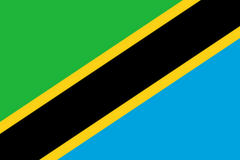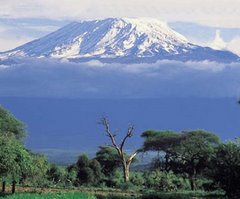Kenya and Uganda have once again been deemed ineligible for a special US development aid programme that is providing Tanzania with nearly $700 million over the next five years.
According to “scorecards” issued last week, Kenya fails to qualify for the Millennium Challenge assistance because it falls short of an anti-corruption standard for the fourth consecutive year.
That finding will have disappointed Foreign Minister Moses Wetang’ula.
He stated in an interview during a September visit to the United Nations that US Secretary of State Condoleezza Rice had assured him that Kenya would soon be approved for a Millennium Challenge grant.
In addition to failing the anti-corruption test that countries must pass in order to qualify for the aid, Kenya was judged to be lagging in regard to rule of law, immunisation rates, health expenditures and fiscal policy.
The country was given passing grades on 12 criteria, including political rights and government effectiveness.
Uganda is not entitled to receive Millennium Challenge funds because it meets one less than the minimal number of standards for potential eligibility.
Uganda fails on measurements of political rights, civil liberties, immunisation rates, health expenditures, girls’ completion of primary education and fiscal policy.
Tanzanian and American officials are meanwhile completing preparations for a Millennium Challenge programme aimed at greatly improving the country’s road and electricity networks.
The scope of this initiative suggests that Kenya and Uganda could also receive substantial infrastructure aid if they were to pass the performance tests established by US monitors.
The $698 million development assistance compact with Tanzania is the largest package of aid among 16 that have so far been approved for developing countries.
The agreements total $5.5 billion, with more than half that amount going to eight countries in black Africa: Benin, Cape Verde, Ghana, Lesotho, Madagascar, Mali, Mozambique and Tanzania
For more than a year, Kenya and Uganda have both been getting help from US officials on how to meet the necessary aid criteria.
The two countries were accepted into a “threshold programme” designed to address problems that have prevented selected countries from qualifying for a full Millennium Challenge compact.
Kenya was awarded $12.7 million for efforts to reduce corruption in the public procurement system.
The Kenyan government had previously identified the Ministry of Health and its Kenya Medical Supplies Agency (Kemsa) as being “particularly susceptible to waste, fraud and abuse throughout the procurement and delivery process,” according to a Millennium Challenge report.
The threshold programme has thus involved a series of workshops on public procurement reforms in which 43 Kenyan procurement entities have so far taken part.
A review of Kemsa’s procurement practices has also been carried out.
A Millennium Challenge status report on Kenya published last month says this assessment of Kemsa “marks a giant step forward in transparency.”
Also as part of the Millennium threshold initiative, Kenyan procurement overseers took part earlier this year in a study visit to the Tanzania Public Procurement Regulatory Authority.
The Tanzanians offered advice on how Kenya might improve its performance in this realm.
Uganda’s $10.4 million threshold programme is focused on procurement reforms as well, with the added aim of improving the effectiveness of investigations by the National Fraud Squad.
“Progress was sustained in mobilising civil society and the private sector in the fight against corruption,” according to a Millennium Challenge status report on Uganda.
Tanzania has been undergoing its own threshold programme even though it has qualified for full Millennium Challenge assistance.
This initiative “has provided critical assistance to sustain Tanzania’s anti-corruption reform movement,” a Millennium Challenge report says.
It notes that 77 districts in the country have established public expenditure tracking systems while 360 villages now have notice boards on which residents can see income and expenditure information for their local areas.
More than 150 prosecutors have recently been hired through the threshold programme as part of Tanzania’s efforts to pursue corruption cases more vigorously.
Subscribe to:
Post Comments (Atom)



No comments:
Post a Comment